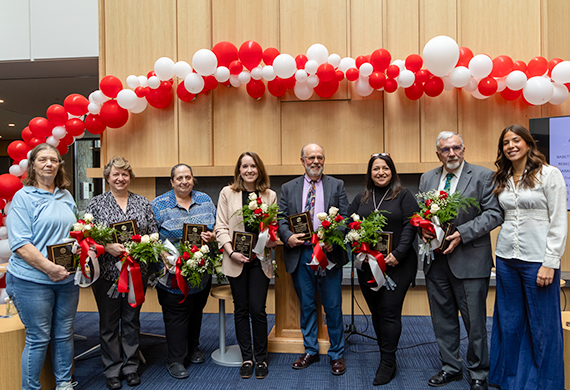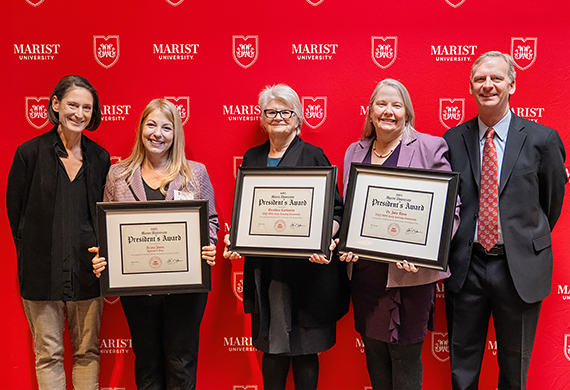Undergraduate Research Marks the Path Forward for Paige Jacob '18
May 4, 2018 — This fall Paige Jacob ’18 will head to Cornell University to begin work toward a PhD in environmental engineering focused on water quality. Her journey actually began as a sophomore working with Associate Professor of Environmental Science Zofia Gagnon.
Gagnon brought Jacob in on a research project where water containing silver nanoparticles was given to rats as their drinking source. Silver nanoparticles are extremely toxic and increasingly found in consumer products, which leads to wastewater pollution and could be found in our drinking water. Rats are used in studies as a model for human; results are extrapolated to make connections about impacts on human health. Gagnon and Jacob also worked with graduate students at Wright State University in Ohio. The Wright students handled the chemistry part of the work; Gagnon and Jacob would send the chemists their samples and did the histopathology for the project.
The findings? “Generally, rats are resilient,” said Gagnon. “But we found carcinomas and very fragile, weak bones.”
“The intensity of the symptoms the rats experienced was surprising,” Jacob added. “Their fur lost its luster and some experienced alopecia. They had cancer in their bones and spleens, as well as other diseases.”
The duo hopes to see their findings published in the journalFood and Chemical Toxicologylater this year. Gagnon is a big believer in getting students involved with research early to expose them to more opportunities, something she feels is a strength at Marist.
For Jacob, that’s exactly what happened. The work with Gagnon solidified her interest in exploring how environmental pollution can impact human health. “After seeing how toxic the silver nanoparticles were to the rats when administered to them in their water, I became extremely interested in water quality issues for both human and ecosystem health,” said Jacob.
She’s now conducting research on perfluorooctanesulfonate (PFOS), which is a global pollutant. PFOS was the key ingredient in fabric protectors and stain repellents, such as Scotchgard. “PFOS isanother contaminant of concern that is infiltrating both our water sources and ecosystems, similar to silver nanoparticles, andhas been shown to be extremely toxic,” said Jacob.
This work led Jacob to Dr. Damian Helbling at Cornell University. “Cornell does really great work on water quality and professorsare all doing extremely interesting and cutting edge work in the field,” said Jacob. “He reached out to me after seeing my application andthought that my research interests aligned well with his.”
She will work in his research lab this fall and feels confident she’s on the right path. “This work fits into my overall goal of removing harmful pollutants from our water to benefit humans and the Earth.”



